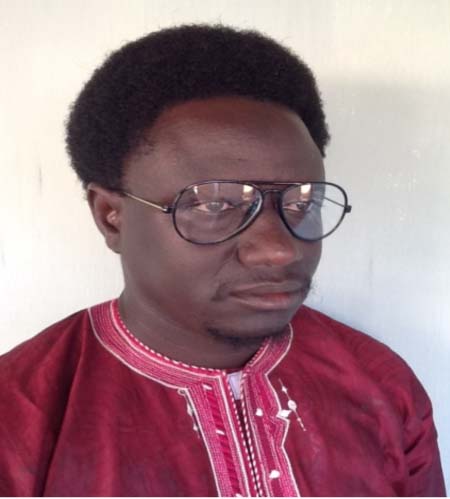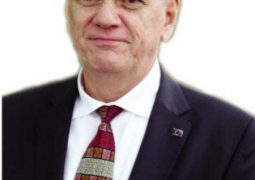
According to CORY-The Gambia project coordinator Mamadou Edrisa Njie, the project targets rural youth organisations, networks, groups, and institutions for entrepreneurship training, advocacy, networking and knowledge exchange.
He also noted that the project, which is supported by IFAD, would build on IFAD’s ongoing rural-youth projects in the targeted four countries namely, The Gambia, Benin, Nigeria and Cameroun.
“This will provide a direct link to other countries in West and Central Africa through enhanced access to best practices, innovations as well as access to support services required for improving rural youth investments,”Mr Njie stated.
Mr Njie also indicated that the project is directly aligned with the IFAD Strategic Framework 2011-2015 objectives, by serving as an economic asset base for poor rural youths to utilise to build sustainable businesses, and contribute directly to the reduction of poverty through raising incomes of youths in rural areas.
He asserted that the goal of the CORY project is to enable young rural women and men to create sustainable farm and non-farm businesses, by building their entrepreneurial capacities for enhanced peer learning and their access to complementary business development services.
“The project duration is from 2014 to 2017,” he disclosed.
According to him, the Global Youth Innovation Network Gambia chapter (GYIN Gambia Chapter) is coordinating the project implementation with the National Implementing Partners (NIPs) - Gambia Women’s Finance Association (GAWFA), Village Savings and Credit Associations (V-Apex) and Jarumeh Koto Youth Development Association (Jarumeh Youths) as well as other partners.
He said, in 2015, the CORY project collaborated with the Ministry of Youth and Sports through its satellite institutions like the National Youth Council (NYC), National Enterprise Development Initiative (NEDI).
He said the International Fund for Agricultural Development (IFAD) supported projects such as the National Agricultural Land and Water Management Development Project (Nema) and Livestock and Horticulture Development Project (LHDP), which are also key stakeholders.
Mr Njie disclosed the CORY Consortium is being delivered by organisations with a wealth of experience such as Center for Entrepreneurship Education and Development (CEED) in Nova Scotia, Canada, and Venture for All (VFA), an affiliate of the Columbia Business School in New York, USA, Susterra, Boston, Global Youth Innovation Network International (GYIN International).
In The Gambia, he continued, CORY national implementing partners include the Gambia Women’s Finance Association (GAWFA); Jarumeh Koto Youth Development Association and Village Savings and Credit Associations (VISACA Apex).
The objective of this component is to promote the interest of the rural poor of young women and men in the principles and ideas around the character, psychological and attitudinal demands of entrepreneurship through entrepreneurial training and mentorship, he said.
“By making entrepreneurship, business management, and technical training available to rural poor young men and women, meeting this objective will provide services that will reduce poverty and raise incomes,” he added.
The three main components of the project are knowledge management and research/survey of business development services; provision of rural entrepreneurial training, mentorship and business development services and micro-credit lending, he said.
“The overall goal of the project is to enable young rural youths to create sustainable farm and non-farm businesses, by building their entrepreneurial capacities for enhanced peer learning and their access to complementary business development services.”
“This project will build on IFAD’s ongoing and pipeline rural-youth projects in the target four countries, and provide a direct link to other countries in WCA through enhanced access to best practices, innovations as well as access to support services required for improving rural youth investments. Linking rural youth with market and business development services is critical when promoting farm and non-farm activities among rural youth,” Mr Njie continued.
According to him, the benefits attached with the CORYProject include research and assessment process of the needs of poor rural youths, farm and non-farm entrepreneurship training programmes, agri-business entrepreneurship training programmes, entrepreneurship, mentoring programmes, advisory networks and Incubators, workshops and events provide micro-credit loans through assessing loan repayment and risk mitigation, and the youth entrepreneurs without borders.
He said the overall goal of the project is to enable young rural women and men to create sustainable farm and non-farm businesses, by building their entrepreneurial capacities for enhanced peer learning and their access to complementary business development services.
He said objective one is to research, document and share learning from the project through practical knowledge products, communities of practice, and events that would support the scaling up and replication of successful youth-led venture creation and business development for rural youths in West and Central Africa.
Objective two is to build the capacity of rural youth organizations to develop and deliver entrepreneurial innovation-based experimental training, mentorship, advisory, and partnership services to support youth employees and entrepreneurs in rural areas of West and Central Africa.
Objective 3 is to build the capacity of local financial institutions to provide micro-credit through risk assessment and mitigation, and to develop and deliver youth-inclusive financial instruments in rural areas of Benin, Cameroon, Gambia, and Nigeria.




